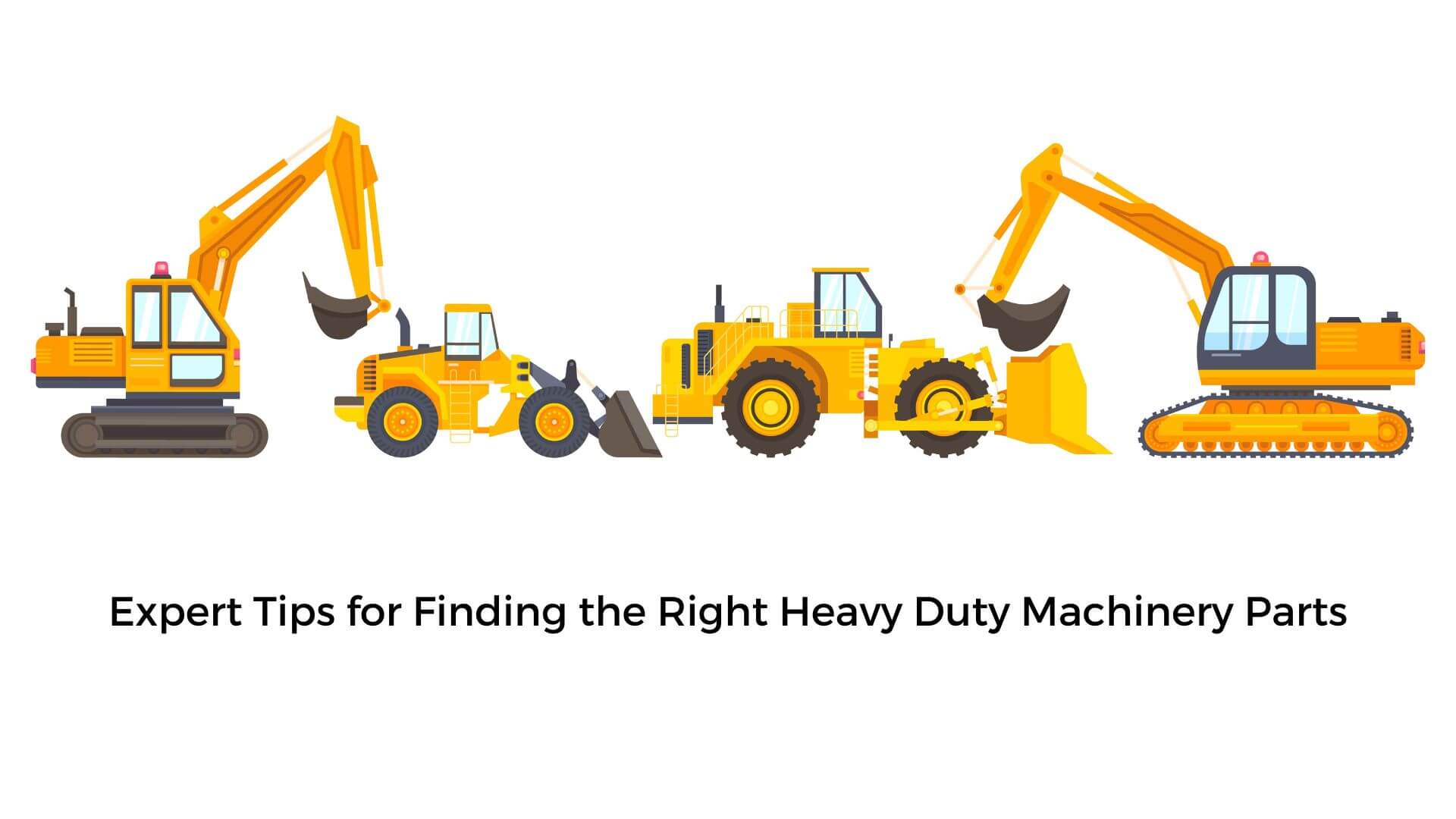Heavy duty machinery is essential for industries such as manufacturing, agriculture, and construction. The equipment is designed to withstand high workload and gross weight. However, even the sturdiest of machinery will eventually wear down, leading to maintenance and repairs. One crucial aspect of machinery maintenance is finding the right heavy-duty machinery parts. You need to ensure that the replacement parts you buy meet the machinery's specifications and are compatible with the other components. In this blog post, we'll share seven expert tips on how to find the right heavy-duty machinery parts.
1. Know Your Equipment
Before you start shopping for replacement parts, it's essential to have a deep understanding of the machinery you're working with. Different machinery models have specific parts that are unique to them. Therefore, it's crucial to know your machinery's make and model, year of manufacture, serial number, and relevant specifications. The machinery manual provides an in-depth guide on the information you need to know before you can purchase any equipment parts.
Additionally, consider the environment in which the machinery operates. For instance, machinery used in dusty or wet environments may require additional protective features. Understanding your machinery's environment helps you select parts that are durable enough to withstand the harsh conditions.
2. Consult the Manufacturer
When it comes to machinery maintenance and repair, the manufacturer is often the best source of information and advice. They understand the machinery specifications and provide recommendations for the right replacement parts. Contact the manufacturer to get more information about the machinery parts you need. The manufacturer can also provide you with vital information such as product numbers, installation instructions, and aftermarket options.
When contacting the manufacturer, ask detailed questions about the replacement parts you need. Provide them with your machinery's make and model and any other relevant information. If you have difficulties understanding the information provided, don't hesitate to ask for clarification.
3. Work with a Trusted Dealer or Supplier
Working with a reputable dealer or supplier provides you with quality and authentic machinery parts. Find a supplier that specializes in the type of machinery you have. They are more likely to have the expertise and knowledge needed to provide suitable replacement parts. If you're in the market for high-quality track pads for excavator wheels, a trusted dealer or supplier can help you find reliable and cost-efficient track pads. Excavator track pads are the rubber or steel parts attached to the excavator's tracks, which provide traction and durability on rough terrain. these pads wear down over time due to extensive use, harsh conditions, and exposure to external factors such as debris and abrasion.
If you’re starting a construction, mining, or material handling business, investigate potential suppliers to establish their reputation and credentials. Look for customer feedback, reviews, and referrals. A supplier with a good reputation can be your trusted partner for a long time. Additionally, consider comparing prices from different suppliers to get the best deal.
4. Inspect the Parts Before Buying
Before purchasing any machinery parts, conduct a visual inspection. Ensure that the parts match the specification provided by the manufacturer. Confirm that they are compatible with other components and visibly free of damage.
It's also essential to check the parts' features such as weight, size, and dimensions. This ensures compatibility with the existing parts. If you spot any defect or damage, it's best not to buy the product.
5. Consider Aftermarket Options
Aftermarket parts are replacements made by other manufacturers besides the original equipment manufacturer (OEM). Aftermarket parts can be an excellent alternative to OEM parts since they are relatively cheaper. In most cases, aftermarket parts perform similarly to OEM parts. Additionally, some aftermarket parts offer unique benefits such as customization options.
However, choosing an aftermarket part requires caution. While some aftermarket parts may be cheaper than OEM parts, they may not be as durable or reliable. Ensure that you research the manufacturer to verify their credibility before making a purchase.
6.: Invest in Quality and Durability
Heavy-duty machinery parts need to be durable and of high quality. Invest in parts that will last longer, perform better, and lower the risk of downtime or accidents. While high-quality parts may be more expensive, they save you money in the long run since you don't need replacements frequently.
When selecting a replacement part, focus on the durability and performance. The best way to ensure quality is to confirm that the parts meet industry standards and regulations.
7. Keep Good Records and Maintenance Logs
After purchasing your machinery parts, it's essential to keep a record of all maintenance and repairs made. Keep records of every replacement part, including its specifications, purchase date, and cost. Additionally, maintain a maintenance log for your machinery, indicating when repairs were made and what parts were replaced.
Maintaining good records and maintenance logs can help you identify patterns and plan for future replacements. It can also help you establish a maintenance schedule to minimize downtime and costs associated with machinery breakdowns.
Finding the right heavy-duty machinery parts requires a deep understanding of the machinery and its environment. Consult the manufacturer and reputable suppliers for recommendations. Evaluate the parts for durability and quality before making a purchase. Investing in high-quality parts saves you money in the long run. Finally, maintaining good records and maintenance logs can help you plan for future replacements. By following these seven expert tips, you can find the right heavy-duty machinery parts and keep your machinery working efficiently.





